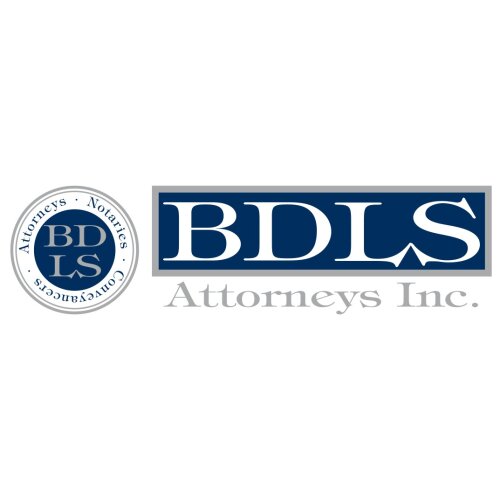Best Tax Lawyers in Port Elizabeth
Share your needs with us, get contacted by law firms.
Free. Takes 2 min.
List of the best lawyers in Port Elizabeth, South Africa
About Tax Law in Port Elizabeth, South Africa:
Tax law in Port Elizabeth falls under the broader legislative framework of South Africa's tax code. Taxes in South Africa are managed and collected by the South African Revenue Service (SARS). Key aspects of taxation include income tax, value-added tax (VAT), corporate tax, and capital gains tax. Understanding and navigating these different types of tax can be complicated, and legal advice can be beneficial.
Why You May Need a Lawyer:
Residents and businesses often seek legal help when dealing with complex financial planning, tax disputes, estate planning, and business formation. Lawyers can provide vital advice, ensure tax compliance, and resolve issues or disputes related to taxes. They can be particularly beneficial for business owners, self-employed individuals, or anyone undergoing an audit by SARS.
Local Laws Overview:
South African tax law states that residents are taxed on their worldwide income, whereas non-residents are taxed on South African-sourced income only. Companies are subject to corporate tax and VAT. The current corporate tax rate is 28% and VAT is 15%. Having a local understanding of these laws, due dates, exemptions, and possible deductions can be crucial in managing and complying with tax obligations.
Frequently Asked Questions:
1. Am I required to file a tax return in South Africa?
Any individual earning taxable income above the tax threshold needs to file a tax return in South Africa. However, certain additional conditions could require one to file a return, even when earning less.
2. What can be deducted from my taxable income?
Standard deductions include contributions to retirement funds, medical expenses, and certain insurance premiums. Other deductions depend on the nature of your income.
3. What is the Value-Added Tax (VAT) in South Africa?
VAT, a form of indirect tax, is currently set at 15% in South Africa. It applies to almost all goods and services.
4. Can I appeal against SARS decisions?
Yes, if you disagree with SARS on your tax assessment, you can object and appeal against their decision. Legal advice can be crucial during this process.
5. How can a tax lawyer assist me?
A tax lawyer can help to ensure you are compliant with all tax laws, assist with filing of tax returns, and represent you in cases of disputes or audits with SARS.
Additional Resources:
The South African Revenue Service (SARS) website provides comprehensive information on tax laws in South Africa. Additionally, the Tax Ombud provides impartial and fair avenues for resolving tax disputes. Tax practitioners and legal firms specializing in tax law are valuable resources for tailored assistance.
Next Steps:
If you require legal assistance in tax, start by researching reputable local legal firms specializing in tax law. Set up consultations to discuss your situation, assess their expertise, and understand their fee structures. Planning ahead and seeking legal advice can help minimize tax obligations and prevent potential disputes.
Lawzana helps you find the best lawyers and law firms in Port Elizabeth through a curated and pre-screened list of qualified legal professionals. Our platform offers rankings and detailed profiles of attorneys and law firms, allowing you to compare based on practice areas, including Tax, experience, and client feedback.
Each profile includes a description of the firm's areas of practice, client reviews, team members and partners, year of establishment, spoken languages, office locations, contact information, social media presence, and any published articles or resources. Most firms on our platform speak English and are experienced in both local and international legal matters.
Get a quote from top-rated law firms in Port Elizabeth, South Africa — quickly, securely, and without unnecessary hassle.
Disclaimer:
The information provided on this page is for general informational purposes only and does not constitute legal advice. While we strive to ensure the accuracy and relevance of the content, legal information may change over time, and interpretations of the law can vary. You should always consult with a qualified legal professional for advice specific to your situation.
We disclaim all liability for actions taken or not taken based on the content of this page. If you believe any information is incorrect or outdated, please contact us, and we will review and update it where appropriate.










